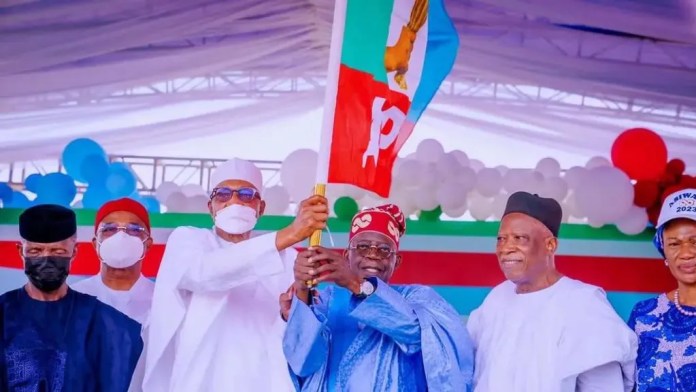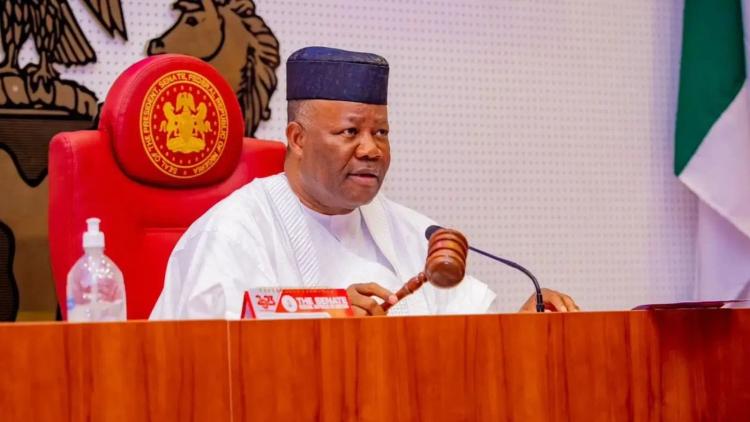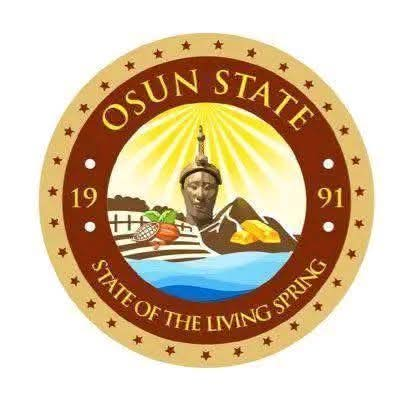As the country gets set to elect a new president next Saturday, there are strong indications that all is not well within the ruling All Progressives Congress, APC.
The cracks are widening at break-neck speed. But even observers of Nigeria’s political evolution, especially from 2015 when the APC took power from the Peoples Democratic Party (PDP), are stunned by this turn of events.
The pundits predicted that the APC, which was knocked together chiefly to grab power, would sooner or later disintegrate. That it was only a matter of time for this alliance of strange bedfellows to arrive a precipitous cul-de-sac .
But they never envisaged that it would be so messy and lay bare the nature and depth of the desperation of these disparate interests, personalities and political camps scrambling in this final push for power. Certainly, this has further eroded the support base and significantly diminished the already record-low credibility of the APC.
However, never forget that Tinubu, the APC presidential candidate, had declared that his life’s ambition has always been to be president and that this is his turn to rule Nigeria.
Ironically, the open and bitter war of words and wits between Tinubu’s supporters and aides of President Muhammadu Buhari is over the naira swap policy of the same APC administration. This is symbolic of the contradictions that have characterised governance in the last eight years.
And this one is significantly adding to the pains, fears, social dislocations and frustrations assailing an already distraught population buffeted by fuel scarcity, insecurity and other miscalculations and outright failures of this APC administration.
This war is also spawning national security concerns, which should greatly worry citizens. If there is discord within the APC, it definitely has a domino effect on the general well-being of the country as it is the political party controlling the levers of governance, especially the critical security department.
There have been claims from the Tinubu camp that the original reason for changing the colour of the three denominations was to cause mass unrest that would derail the presidential vote for an interim government to be imposed by the Buhari administration. This shows how deep and caustic the wrangling within the ruling party runs.
But the president’s aides have repeatedly insisted that the aims of the cash swap were being gradually achieved. They argue that it has slowed down corruption related to the predominance of the cash economy and there are signs that it would go a long way in curbing vote buying during the general elections.
Buhari doubled down on this in his Thursday national broadcast – a rare occurrence, as he had remained quiet throughout the unfolding national turmoil. Not that he had been a particularly outspoken president, though.
But tormented Nigerians are on tenterhooks. They are disturbed that while the APC Federal Government is upbeat about the successes of the money swap, its own members in Tinubu’s campaign team, leading members of the national parliament and even governors and ministers who had been the president’s closest allies are up in arms against it.
Governors El-Rufai and Ganduje of Kaduna and Kano states and Festus Keyamo, a minister, are leading the onslaught.
And this is raising fundamental questions in the minds of sceptical Nigerians. First, do Tinubu’s supporters have something to hide as far as this cash swap policy is concerned? This poser is pertinent considering the matter of the bullion van seen at his palatial Lagos home on the eve of the 2019 presidential poll.
Second, is the Buhari government in possession of certain classified information that has shown that Tinubu had stock-piled cash to use in buying votes or influencing voters on Saturday and the president is bent on thwarting it, no matter the pains it causes Nigerians?
This question is based on the assumption in some quarters that Mr. Buhari, who perceives himself as a ‘Mr. Clean’, could be working towards leaving a legacy of conducting a free and fair election, uncompromised by raw, and perhaps illegally acquired, cash.
Third, could the president truly be using the cash swap to further dim Tinubu’s chances? Is it possible that the allegations of corrupt enrichment, doubts about his true origins, shady educational background and health status, etc, swirling around Tinubu may have raised doubts in the president’s mind about Tinubu’s integrity and, therefore, fitness to occupy the exalted office of president?
As a corollary to this, only the self-deluded would not believe that Buhari was never favourably disposed to Tinubu’s emergence as APC’s presidential candidate. It was the APC governors that forced his hand here. In fact, the party’s national chairman had, before the presidential primaries, announced the president’s preferred choice – who was going to be the much-awaited consensus candidate at the time.
Citizens are also perplexed that it is mainly APC governors and top ranking officials of the Tinubu campaign group that are criticising the president for defying the Supreme Court order on the new currencies.
It’s surprising that throughout the last eight years, these same people and even the APC presidential candidate had never spoken out against any of the FG’s serial disobedience of court orders and other toxic policies and systemic failures.
Last year’s eight months university lecturers’ strike, continued incarceration of Nnamdi Kanu, etc, are other examples. As a matter of fact, it’s utterly vexatious that some governors are now rolling out so-called palliatives to cushion the effects of the naira crunch.
This is widely seen as a desperate political manoeuvre only aimed at watering the ground for the general elections. These states never did that before, even during national emergencies such as the lock-downs occasioned by the COVID 19 pandemic.
Now, going forward, is President Buhari using the currency redesign to redeem himself, even if belatedly? Has he finally realized that these people excoriating him also influenced him to make wrong choices and take decisions that were disastrous to the national interest but boosted their egos and feathered their political nests?
Whatever the case, the war within the APC has clearly shown the motives and motivations that have driven public policy in the last eight years. This fierce in-fighting has further exposed the APC for what it truly is – an amalgamation of unprincipled and rapacious people and groups only united by their quests to satisfy their burning greed for power.
Can Nigerians still trust this lot with their destiny in the next four years? Well, Saturday beckons. March 11 too.
(GYANG is the Chairman of the N.G.O, Journalists Coalition for Citizens’ Rights Initiative – JCCRI. Emails: info@jccri-online.org; chrisgyang01@gmail.com)





